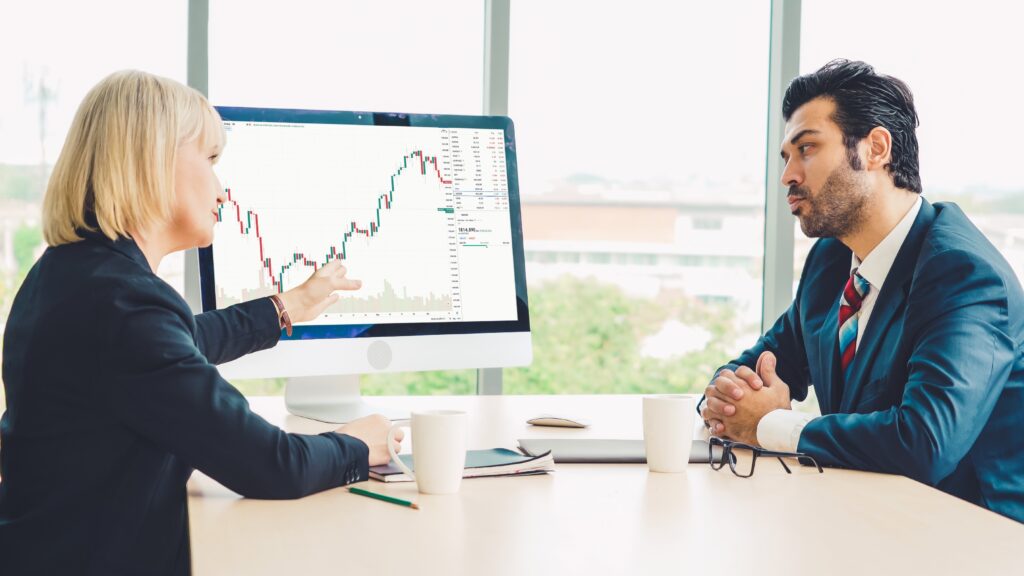Forex trading, also known as foreign exchange trading, buys and sells currencies to make a profit. It involves the simultaneous buying of one currency and selling of another. With the rise of globalisation, forex trading has become more accessible than ever. In Singapore, forex trading is a popular investment tool due to its potential for high returns.
One of the critical concepts in forex trading is leverage, which refers to using borrowed funds to increase the potential return on investment. While leverage can amplify profits, it also comes with its own set of risks and challenges. This article will explore the effects of leverage in forex trading in Singapore.
Increased profit potential
Leverage in forex trading allows investors to control more significant amounts of currency with only a fraction of the actual value. Therefore, even with limited capital, traders can access more prominent positions in the market, resulting in higher potential profits. For instance, if an investor has SGD1000 and uses a leverage ratio 1:50, they can trade with SGD50,000 in the forex market. If the currency they invested in increased by 5%, their profit would be SGD2,500 instead of SGD50.
However, it is essential to note that leverage also amplifies losses. In the example above, if the currency decreases by 5%, the investor’s loss would be SGD2,500. It highlights the significant risk involved when using leverage in forex trading.
Traders must have a sound risk management strategy when using leverage to maximise profit potential. It includes setting stop-loss orders and diversifying their investments to minimise losses.
Greater market exposure
Leverage allows traders to access a broader range of markets and currencies because, with lower margin requirements, investors can enter trades that would have been unfeasible without leverage. Therefore, traders can diversify their investment portfolios using different currency pairs and market conditions.
However, greater market exposure also means increased risk. Traders must understand the complexities of each market they enter and keep up with global events that may affect currency prices. It requires a high level of knowledge and experience to make informed trading decisions in various markets.
It is essential to note that leverage can increase market exposure but does not guarantee profits. Traders must thoroughly understand their trade markets and continuously monitor their positions to mitigate potential losses.
Lower transaction costs
Leverage can reduce transaction costs in forex trading by allowing traders to make larger trades with smaller initial capital. In Singapore, lower transaction costs are a significant advantage for forex traders because the city-state is a hub for international trade and finance. With leverage, investors can access more significant market opportunities without incurring high fees or commissions.
However, traders must be cautious when using leverage to reduce transaction costs, as higher leverage ratios can translate to larger spreads. Researching and comparing different brokerages is crucial, and choosing one with competitive fees and low spreads is vital.
Traders must also remember that leverage increases their potential risk and losses, making it essential to have a comprehensive risk management plan.
Psychological impact
Leverage can have a significant psychological impact on traders. With the potential for high returns, investors may be tempted to take more significant risks, leading to over-trading and emotional decision-making. Traders must manage their emotions and stick to their trading strategies when using leverage.
With the possibility of significant profits, investors may become overly confident in their abilities, leading them to ignore potential risks and trade recklessly. Traders must balance taking calculated risks and managing their emotions when using leverage in forex trading.
It is also crucial for traders to understand that leverage can amplify losses, leading to significant emotional distress and mental strain. Therefore, it is essential to have a sound risk management plan in place and use leverage responsibly.
Increased volatility
Leverage can amplify the market’s movements, resulting in heightened volatility. In Singapore, where the currency market is known for its stability, increased volatility due to leverage can be both a blessing and a curse.
On one hand, higher volatility can result in more significant profits for traders who make the right decisions. On the other hand, it can also lead to substantial losses if traders do not understand market dynamics and use leverage irresponsibly.
Traders must be prepared to handle increased volatility when using leverage and constantly monitor their positions to minimise potential losses.
Regulatory impact
In Singapore, forex trading is regulated by the Monetary Authority of Singapore (MAS). Leverage is subject to regulatory restrictions and limitations to protect traders and maintain market stability. For instance, MAS has capped leverage ratios for retail investors at 20:1, limiting the amount of borrowed funds traders can use.
These regulations prevent excessive risk-taking and protect inexperienced traders from significant losses. Traders must understand and adhere to these regulations when using leverage in forex trading. Choosing reputable and regulated brokerages that comply with these regulations is also crucial.


